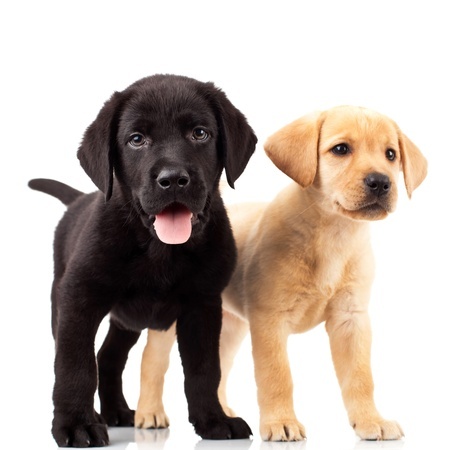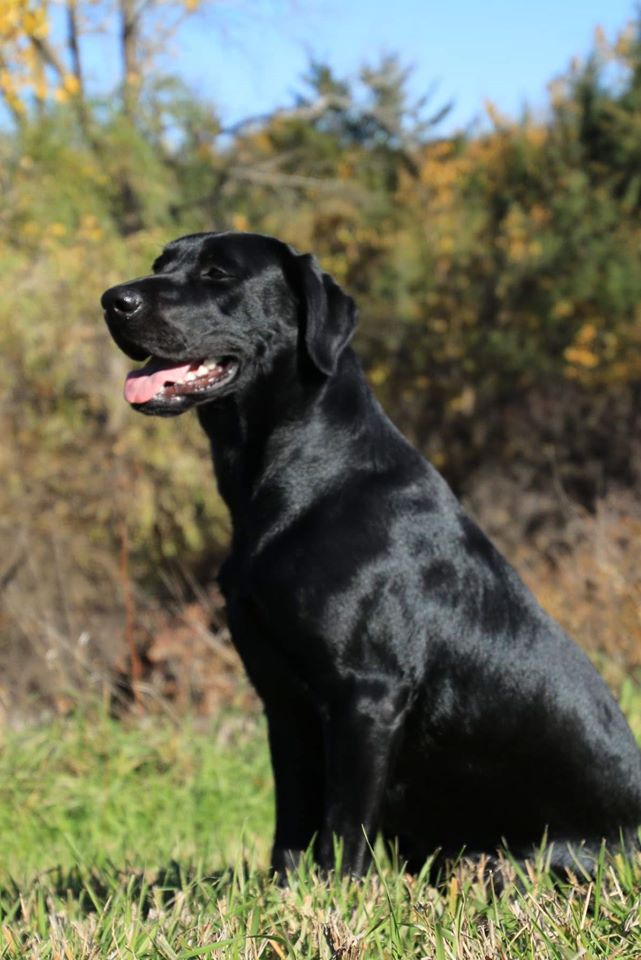
The Labrador is one of the most popular dog breeds in the U.S. Their ability to be highly trained makes them a great hunting or pointing dog. However, while they are considered to be the “All-American Dog,” not many realize how their coat colors come to be. Of course, they are determined genetically but how did a yellow Lab get its coat from a brown and black parent? Let us explain the genetics of the great Labrador.
As we know, a Lab’s coat can be yellow, black, or chocolate brown. Other more rare colors include silver, white, fox red, and charcoal labs. A Labrador’s coat color is determined by the location of the chromosome and unlike other traits; they are not inherited based on the sex of the animal. Each dog contains the genes for every colors potential, but one color gene is “turned on” while the others lay dormant. Below are some clues as to what your lab’s family bloodline might look like:
Chocolate Labs
Like all traits, there are dominant and recessive genes. In terms of breeding Labradors, the black coat color is dominant (B) and the chocolate is recessive (b). Based on this information, if one or both puppy parents carry the dominant gene for a black coat, the puppy will be a black Lab but it is possible it could carry the recessive chocolate gene. On the other hand, the puppy could be chocolate if and only if both parents are chocolate Labradors (bb).
A complicating factor can be the Ee gene. If this gene is present, it dilutes the color of the other gene present. A diluted chocolate lab is known as a silver lab.
Yellow Labs
Yellow Labs are different from the other Labs in the sense that the location of the DNA that determines if your puppy inherits the yellow gene is different from black and chocolate Labradors. In the yellow spectrum we can also find white and fox red colored coats. The colors will generally depend on the colors of their skin combined with the color of fur.
Your Labrador puppy can only be yellow if they have two recessive yellow genes (yy). Even if one of the puppy’s parents are carrying the recessive (Yy) gene, the puppy will still turn out to be a black or chocolate Lab.
Black Labs
Black is the dominant gene for Labradors and often times, litters of puppies include black. In most cases, if one parent is a black lab, the whole litter will most likely have black fur. A diluted black gene produces a puppy with a charcoal colored coat.
To be sure of what type of Lab you will receive, it’s best to visit a breeder. The breeder knows the genetic history and health of the puppy better than anyone.

